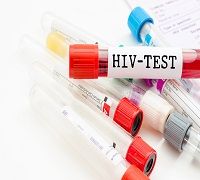Article
Hopkins Gets Nod on HIV Organ Transplant
Author(s):
Johns Hopkins University has been granted approval from the United Network for Organ Sharing (UNOS) to be the first hospital in the country to perform HIV-positive to HIV-positive organ transplants.

Johns Hopkins University has been granted approval from the United Network for Organ Sharing (UNOS) to be the first hospital in the country to perform HIV-positive to HIV-positive organ transplants.
A monumental step in the right direction — this milestone could be the difference between life and death for at least 1,000 US patients living with HIV and end-stage organ disease.
Prior to the HIV Organ Policy Equity (HOPE) Act in 2013, physicians were not authorized to use organs from HIV-positive donors, regardless of whether they were meant for an HIV-positive patient.
This Hope Act was influenced by an organ transplant program in South Africa that produced favorable outcomes for non-HIV transplants in HIV-positive recipients and the proven results of HIV-positive to HIV-positive kidney transplants.
The three-year gap between the passing of the Act and the latest Johns Hopkins’ approval is attributed to the National Institutes of Health (NIH)’s development of safety guidelines for the otherwise elusive HIV-positive transplantations.
Studies have recently shown approximately 400 are listed as potential HIV-positive donors.
To put this into perspective, the US Department of Health reported that in 2014, of the nearly 121,000 organ transplant patients on the waitlist, only one in four actually received a transplant.
Unfortunately, many patients waiting for organs are infected with HIV, but either become too sick to be transplanted or die while waiting.
According to Emily Blumberg, PhD, professor at the Perelman Center for Advanced Medicine at the University of Pennsylvania, Philadelphia, PA, “The findings are significant because there are not enough organ donors in the US to meet the needs of all the patients who might benefit from life-saving organ transplants. “Some of the patients waiting for organs are infected with HIV, but never make it to transplant because they either die while waiting or become too sick to be transplanted.”
“We are very thankful to Congress, Obama, and the entire transplant community for letting us use organs from HIV-positive patients to save lives, instead of throwing them away, as we had to do for so many years, “ remarked Dorry Segev, associate professor of surgery, Johns Hopkins School of Medicine.
This approval will make Johns Hopkins the first hospital in the US to administer an HIV-positive kidney transplant, and the first in the world to perform an HIV-positive liver transplant.




